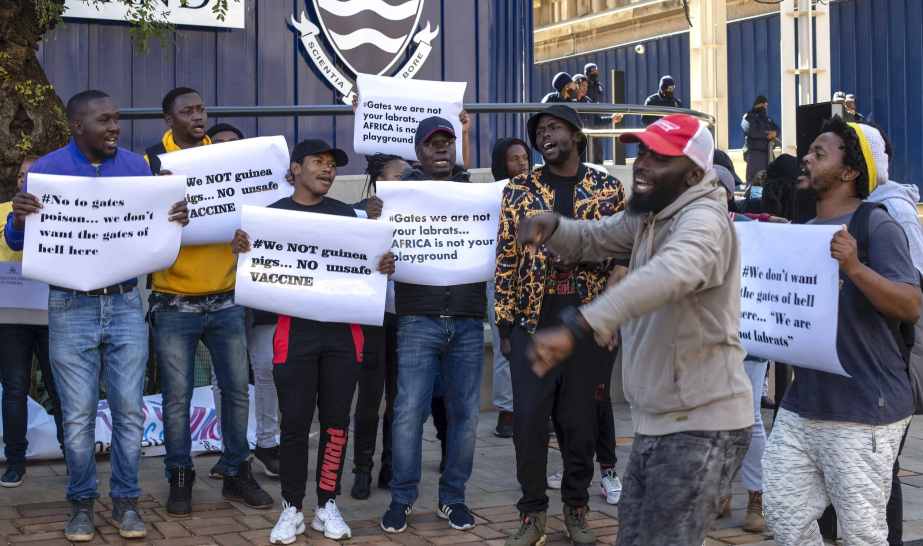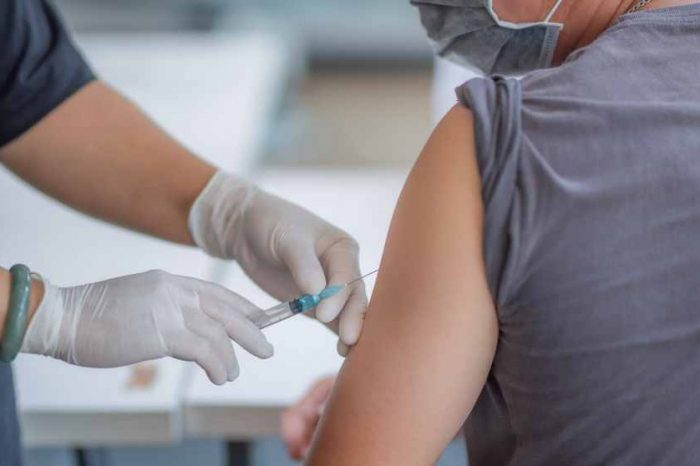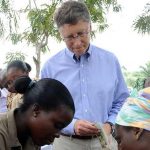Bill Gates says vaccines are the best investment he’s ever made, revealed he invested $10 billion in Gavi, the Global Fund, Vaccine Alliance, and GPEI

Over the past decade, billionaire and Microsoft co-founder Bill Gates has been criticized for pushing Big Pharma vaccines and medicines on regions of Africa with disastrous results. Some people even used Gates’ own words to accuse him of using new vaccines for population control.
But love him or hate him, Gates is passionate about the philanthropic work his foundation is doing in eradicating diseases and saving the lives of African children. In 2015, Gates had warned that the biggest potential killer the world faced wasn’t war, but a pandemic. Since then, he has spent hundreds of millions of dollars to find faster and betters ways to develop vaccines and create disease-tracking systems. He urged world leaders to build national defenses against new infectious diseases.
Fast forward four years later just about a year before the coronavirus pandemic began, Microsoft co-founder Bill Gates wrote an essay in the Wall Street Journal where he shared the best investment he has ever made. Unknown to him at the time that the worst pandemic since 1918 was on its way, Gates revealed he invested $10 billion in three particular organizations through the Bill & Melinda Gates Foundation.
In the essay titled “The Best Investment I’ve Ever Made,” Gates said he invested $10 billion in Gavi, the Vaccine Alliance; the Global Fund; and the Global Polio Eradication Initiative, a program that helps deliver drugs to developing countries. Gates said his investment in those organizations has been a rewarding experience because unlike other kinds of investments, they are consistently successful.
“Over the past two decades, my wife Melinda and I have put a total of $10 billion into organizations that do this challenging work, including three big ones: Gavi, the Vaccine Alliance; the Global Fund; and the Global Polio Eradication Initiative. Each of them has been extremely successful, but most people don’t know their names or what they do,” Gates wrote.
“Technology is a boom-or-bust business, but it’s mostly busts. I’ve always assumed that 10% of my technology investments will succeed — and succeed wildly. The other 90% I expect to fail,” Gates wrote.
“Since Gavi was founded, the number of children under the age of 5 dying in low- and middle-income countries has dropped by about 40%,” Gates wrote.
However, not all Africans are supportive of Gates’ effort on the continent. Amid the pandemic in July 2020, hundreds of African protesters took to the street to reject the COVID-19 vaccine from Bill Gates-funded Gavi Vaccine Alliance, saying “we [are] not guinea pigs” of racially motivated trials.

For example, more than 1,674 South Africans have died from Covid-19 as of July 2020. The University of Oxford, in partnership with AstraZeneca, struck a deal with the Coalition for Epidemic Preparedness Innovations (CEPI) and Gate-backed Gavi Vaccine Alliance. However, the peaceful trials that started In June quickly turned ugly as protesters against Africa’s first COVID-19 vaccine trial burned their face masks, according to a report from The New York Times.
Meanwhile, Gates still believes eradicating disease is a moral cause. “Over the next two generations, the fight against disease is expected to narrow but also to intensify,” Gates wrote.
He also added that “the developing world, as a whole, is becoming much healthier, but more children are being born in the corners of the globe that have seen the least improvement. With new diseases emerging, old ones evolving and these populations growing, the world is lucky to have such adaptable institutions.”
“When I made the transition from my first career at Microsoft to my second career in philanthropy, I didn’t think that my success rate would change much. … Discovering a new vaccine, I figured, would be just as hard as discovering the next tech unicorn. (Vaccines are much harder, it turns out.)”
But one type of investment “surprised” Gates “because — unlike investing in a new vaccine or technology, the success rate is very high,” he says. “It’s what people in the global-health business call ‘financing and delivery.’”
Also during a 2019 World Economic Forum in Davos, Switzerland, Gates told CNBC in an interview saying, “We feel there’s been over a 20-to-1 return,” yielding $200 billion over those 20 or so years. “Helping young children live, get the right nutrition, contribute to their countries — that has a payback that goes beyond any typical financial return,“ added.

